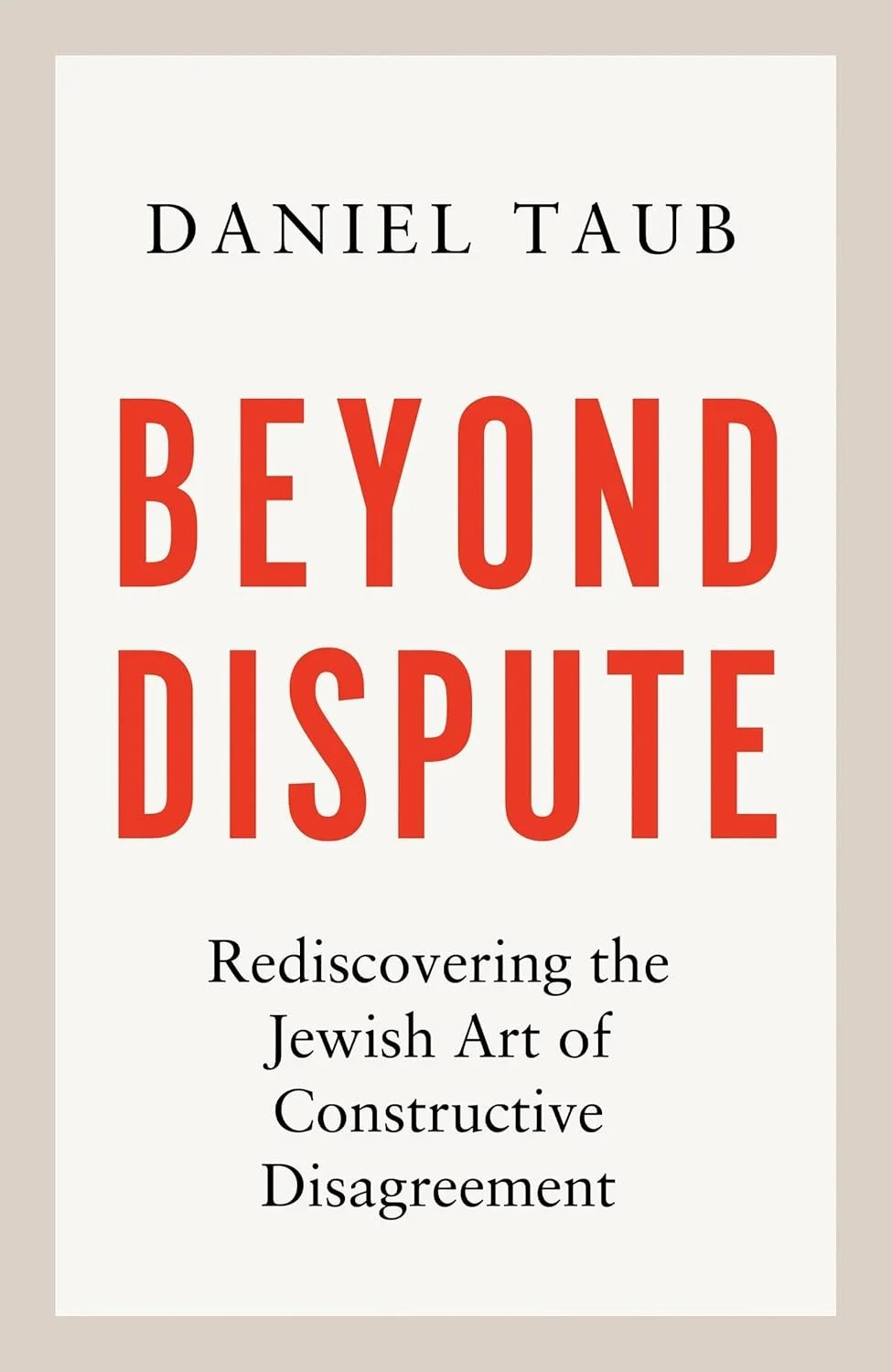Beyond Dispute: Rediscovering the Jewish Art of Constructive Disagreement
/Book: Beyond Dispute: Rediscovering the Jewish Art of Constructive Disagreement
Daniel Taub (John Murray, 2025)
Disagreement is inevitable in any community, including the Church. But how we handle it can either build up or break down the body of Christ. This review explores insights from a Jewish tradition known for its rich, respectful approach to debate. Could there be something to learn from this ancient art of constructive disagreement — even for Christian leaders today?
Reviewer: Richard Harvey
In an age of polarisation and ideological rigidity, Daniel Taub’s Beyond Dispute offers a timely, Jewish understanding of disagreement as a spiritual discipline. Drawing on his experience as a diplomat, lawyer, and student of Rabbi Jonathan Sacks, Taub explores the rabbinic tradition’s embrace of argument as a path to truth - not its enemy. The Talmud’s preservation of dissenting voices reflects a conviction that truth is often multivocal and best refined through “arguments for the sake of heaven.”
Taub’s book is not merely theoretical. He offers practical tools for constructive disagreement: presenting opponents’ views at their strongest, examining one’s biases, and grounding debate in personal story and lived experience. These practices, while rooted in Jewish tradition, are deeply relevant to all—especially where debates over theology, ethics, and identity risk dividing communities.
For Christian preachers, Taub’s dialogical model offers a powerful alternative to pulpit dogmatism. His emphasis on narrative and empathy suggests a homiletic style that invites listeners into moral engagement, not just doctrinal assent. Preaching, like sacred argument, can become a space for encounter - marked by humility, curiosity, and the courage to hold tension.
Yet the book’s vision must be tested against the asymmetries of real-world power - especially in the present Israel–Gaza conflict. In such contexts, dialogue risks masking injustice if not grounded in prophetic truth-telling. Taub’s model is most effective in contexts of mutual vulnerability; where inequality is stark, deeper demands of justice and lament must be heard.
Beyond Dispute makes a powerful contribution to reconciliation across differences. By insisting on the dignity of disagreement, Taub equips individuals and communities to argue with integrity and compassion. This may not end all conflicts, but may help shape the kind of people who, when peace is possible, will be ready to build it.
Reviewer: Richard Harvey teaches Hebrew Bible and Jewish Studies at All Nations Christian college, and preaches as a senior researcher with Jews for Jesus.


